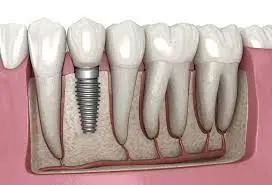- Home
- Medical news & Guidelines
- Anesthesiology
- Cardiology and CTVS
- Critical Care
- Dentistry
- Dermatology
- Diabetes and Endocrinology
- ENT
- Gastroenterology
- Medicine
- Nephrology
- Neurology
- Obstretics-Gynaecology
- Oncology
- Ophthalmology
- Orthopaedics
- Pediatrics-Neonatology
- Psychiatry
- Pulmonology
- Radiology
- Surgery
- Urology
- Laboratory Medicine
- Diet
- Nursing
- Paramedical
- Physiotherapy
- Health news
- Fact Check
- Bone Health Fact Check
- Brain Health Fact Check
- Cancer Related Fact Check
- Child Care Fact Check
- Dental and oral health fact check
- Diabetes and metabolic health fact check
- Diet and Nutrition Fact Check
- Eye and ENT Care Fact Check
- Fitness fact check
- Gut health fact check
- Heart health fact check
- Kidney health fact check
- Medical education fact check
- Men's health fact check
- Respiratory fact check
- Skin and hair care fact check
- Vaccine and Immunization fact check
- Women's health fact check
- AYUSH
- State News
- Andaman and Nicobar Islands
- Andhra Pradesh
- Arunachal Pradesh
- Assam
- Bihar
- Chandigarh
- Chattisgarh
- Dadra and Nagar Haveli
- Daman and Diu
- Delhi
- Goa
- Gujarat
- Haryana
- Himachal Pradesh
- Jammu & Kashmir
- Jharkhand
- Karnataka
- Kerala
- Ladakh
- Lakshadweep
- Madhya Pradesh
- Maharashtra
- Manipur
- Meghalaya
- Mizoram
- Nagaland
- Odisha
- Puducherry
- Punjab
- Rajasthan
- Sikkim
- Tamil Nadu
- Telangana
- Tripura
- Uttar Pradesh
- Uttrakhand
- West Bengal
- Medical Education
- Industry
Changing the flute design affects initial dental implant stability: Study

Changing the flute design affects initial dental implant stability, according to a recent study published in the journal named- Clinical Biomechanics.
Self-tapping screws have been extensively used for dental implants. Their biomechanical behaviour is highly associated with their clinical success, particularly for screws used for immediate implant placement and restoration, because occlusal forces can directly affect the loading transfer at the bone-implant interface after implantation. The effect of implant design on the initial stability of self-tapping screws remains unclear. This study explored the biomechanical behaviours of implant stability in standardized implants with different design features.
Six types of dental implants were designed using computer-aided design/computer-aided manufacturing technology, including three types of cutting flute shapes (spiral, straight, and non–self-tapping) combined with two types of screw features. Peak insertion torque values were first recorded; initial stability levels were subsequently evaluated in terms of the maximum force and resistance to lateral loads using an electrodynamic test system.
The Findings of the study are:
The peak insertion torque values, maximum force, and resistance to lateral loads of the non–self-tapping groups were higher than those of the self-tapping groups by 17%–90% (p < 0.01). The peak insertion torque values of the Straumann implant with a spiral flute was higher than that of the original straight flute by 20% (p < 0.001). However, compared with the original spiral flute, the Nobel Biocare implant with a straight flute had a 23% higher maximum force (p = 0.016) and 24.5% higher resistance (p = 0.012) under lateral loading.
Thus, changing the flute design would affect initial implant stability. Non–self-tapping implants exhibited superior initial stability than did self-tapping implants.
Reference:
A study named, "Influences of screw design feature on initial stability in immediate implant placement and restoration" by authors Min-Chieh Hsieh et al. published in the Clinical Biomechanics
https://www.sciencedirect.com/science/article/abs/pii/S0268003321001832
Dr. Shravani Dali has completed her BDS from Pravara institute of medical sciences, loni. Following which she extensively worked in the healthcare sector for 2+ years. She has been actively involved in writing blogs in field of health and wellness. Currently she is pursuing her Masters of public health-health administration from Tata institute of social sciences. She can be contacted at editorial@medicaldialogues.in.
Dr Kamal Kant Kohli-MBBS, DTCD- a chest specialist with more than 30 years of practice and a flair for writing clinical articles, Dr Kamal Kant Kohli joined Medical Dialogues as a Chief Editor of Medical News. Besides writing articles, as an editor, he proofreads and verifies all the medical content published on Medical Dialogues including those coming from journals, studies,medical conferences,guidelines etc. Email: drkohli@medicaldialogues.in. Contact no. 011-43720751


